




Aotearoa New Zealand’s young and ambitious sustainable innovation sector is being held back by a critical lack of capital.
In addition to access to funding, this initial study of the sector found that clearer policy direction, greater visibility and stronger market demand are essential to enabling these businesses to thrive.
This survey captures the experiences of 44 sustainable innovators—the next wave of purpose-driven businesses. They were selected from the Next 95, a list of finalists in the 2024 Sustainable Business Awards, focused on disruptive innovation. They are predominantly small enterprises, start-ups and grassroots initiatives.
74.5% reported that accessing funding is difficult. That includes over half (53.5%) who reported it is “extremely difficult”.
Other barriers to progress include the need for clearer and more consistent policy direction, greater visibility and awareness of sustainable solutions, and stronger market demand. Only 11.3% described the current policy environment as “supportive” or “very supportive”, while 73.8% identified customer awareness and demand as a challenge.
Despite the constraints, confidence remains high. Over 90% reported growth in customer interest in the past year, and more than 65% expressed optimism about their future growth. Still, profitability remains a challenge: 42.9% of businesses are operating at a loss and only 17% are breaking even.
The need for sustainable innovation has never been more urgent. By backing these businesses, we are not only responding to environmental threats but also unlocking opportunities to build a more resilient, equitable and future-fit economy for Aotearoa New Zealand.
In response, we recommend:
Deploying values-aligned capital at scale
Early-stage sustainable innovation ventures need the development of targeted public and private investment vehicles.
Backing sustainable innovation through public procurement
Large purchasers, including government agencies, corporates, councils and institutions, should actively support initiatives that lower emissions and foster a more ‘circular’ low or no waste economy.
Signalling ambition through collective policy leadership
There’s a growing need for industry, local government, iwi and mission-driven investors to step up and fill the gap in policy settings. They can build coalitions that set clear expectations and voluntary standards, and help shape the conditions for long-term systemic change.
Building consumer awareness through collaborative storytelling
Businesses, media partners, industry networks and investors can co-create campaigns and share narratives that educate, inspire and normalise sustainable choices. Strategic collaboration across sectors can amplify reach and make sustainable alternatives more visible and compelling.
Investing in the conditions for scale
Early-stage sustainability innovations need expanding access to infrastructure, manufacturing capability and technical support.
Cross-sector leadership
A cross-sector coalition led by progressive businesses, Māori enterprise, investors, research institutions and trusted industry networks can set a shared agenda for sustainable enterprise.
We urge policymakers, business leasers, sustainability organisations and influencers of all kinds to take up this call.
RACHEL BROWN ONZM FOUNDER & CEO, SUSTAINABLE BUSINESS NETWORK

The future of Aotearoa New Zealand is being built right now— by the remarkable innovators whose voices are captured in this report.
These are the businesses creating the technologies, products and services that will define our transition to a low-emissions, circular, regenerative and more equitable economy. They're not waiting for permission or perfect conditions. They're solving problems that the rest of us know we need to tackle—but haven't yet figured out how.
But their genius comes at a cost and our systems are holding them back.
Three-quarters of these innovators struggle to access funding. Nearly half are operating at a loss, not because their ideas lack merit, but because our financial and procurement systems aren't set up to back sustainable ventures. Only one in ten describes our policy environment as supportive, despite delivering exactly the kind of innovation we desperately need.
Funding for start-ups increasingly relies on family wealth, putting an unfair burden on low-income families working hard to change their circumstances. We need both democratised funding and wrap-around support for innovators to enable us as a nation to benefit from their growth. This systemic bias means we're potentially missing breakthrough innovations from the very communities most affected by the challenges these businesses aim to solve.
This is a strategic miss. While other countries roll out the red carpet for clean tech and circular economy innovators, we're making ours jump through hoops designed for traditional business models that extract value rather than create it.
The global green technology market is expected to reach nearly US$74 billion by 2030, according to Research and Markets
research. The question isn’t whether this transition will happen—it’s whether Aotearoa New Zealand will be in it.
I've spent decades working alongside sustainable businesses that refuse to accept that profit and purpose are mutually exclusive. Our research into circular and low-carbon economies shows real financial benefits in growing these businesses. What they need is an ecosystem that matches our collective ambition.
This means business leaders actively seeking sustainable suppliers, investors allocating capital based on impact potential alongside returns, policymakers removing regulatory barriers and consumers choosing sustainable products.
The businesses in this report are asking for a level playing field—systems that reward innovation instead of punishing it, and the chance to build the future we all say we want.
The next wave of sustainable innovation is here. Consumer awareness is growing globally. Technology is accelerating. The only question is whether we'll move fast enough to seize this moment.
We have the talent. We have the ideas. We have the determination. Now we need the collective will to back them at scale.
We can be the best place in the world to grow sustainable startups. The future won't wait. Neither should we.

Rachel Brown ONZM Founder & CEO
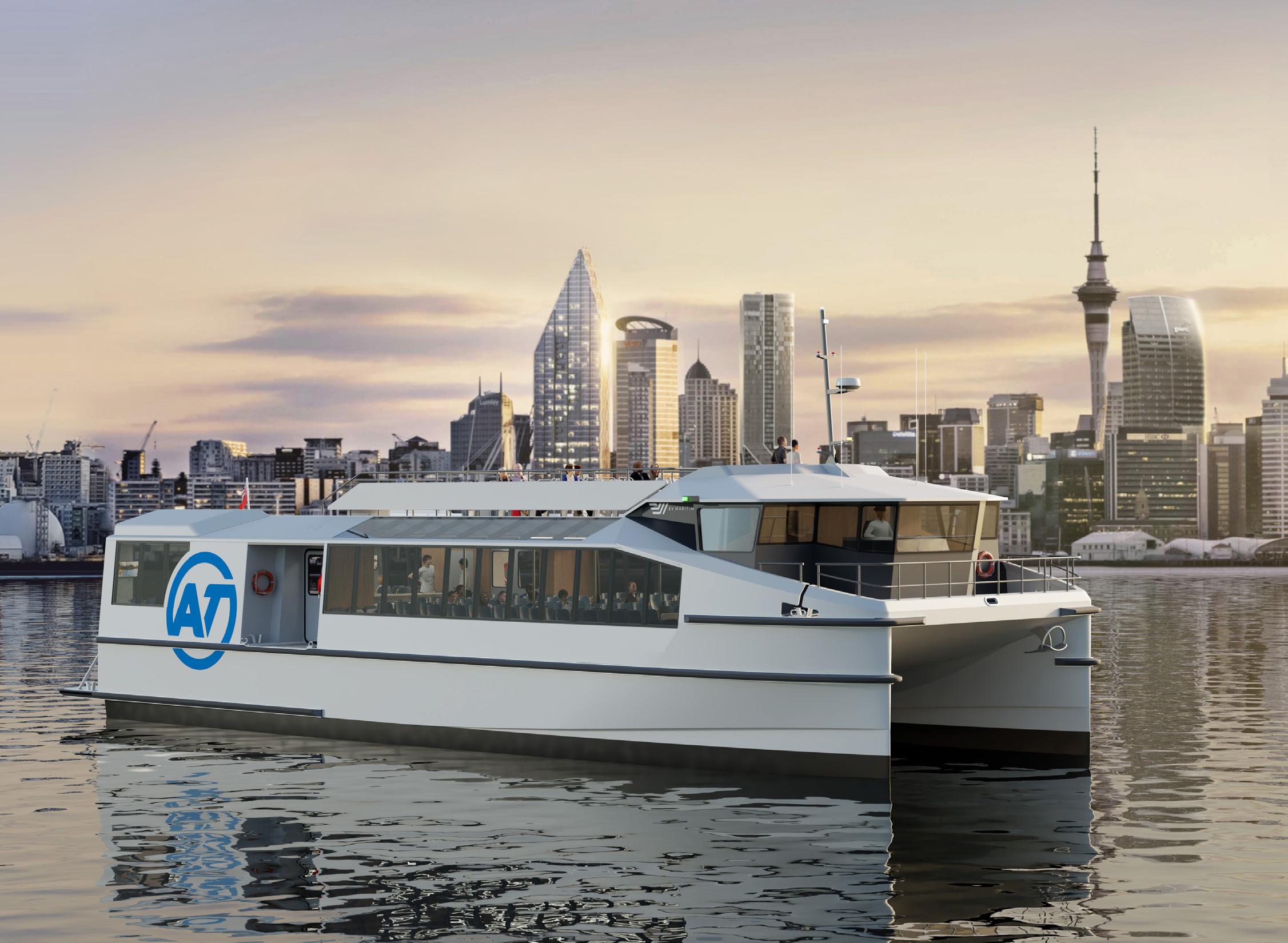
This report examines Aotearoa New Zealand’s emerging sustainable innovators – the next wave of purpose-driven businesses.
The findings are based on a survey of finalists in the 2024 Sustainable Business Awards, a group named the Next 95. They were selected for disruptive innovation or transformational leadership.
The report provides a barometer of sentiment across a sector defined by purpose, ambition
and emerging impact. It explores how these innovators perceive their operating environment, what’s helping or hindering their growth, and what’s needed to scale their impact.
The report is intended to inform and influence government, investors and sector leaders. It offers essential insights into a new wave of businesses creating low-emissions technologies, circular economy solutions, regenerative practices and socially inclusive business models. These ventures are not only solving critical challenges but also laying the foundation for a more resilient, prosperous future.
The need for sustainable innovation has never been more urgent. Globally, we are facing compounding environmental and social challenges—climate change, biodiversity loss, resource scarcity and rising inequality. These pressures are intensifying, placing unprecedented strain on natural systems, economies and communities.
According to a recent report from the International Panel on Climate Change (IPCC) report, global surface temperature is very likely to reach 2.1-3.5C above pre-industrial levels under a medium emissions trajectory.
Such a scenario would see lethal heatwaves, floods, famine and drought becoming commonplace across large parts of the globe.i
In Aotearoa New Zealand, we are already experiencing the effects of a warming climate. That includes more frequent extreme weather events and impacts on ecosystems, infrastructure and primary industries. In 2022, more than a third of assessed terrestrial invertebrate species were threatened with extinction or at risk of becoming threatened. Models estimate that between 2016 and 2020 45% of the country’s total river length wasn’t safe to swim in.
Meanwhile, our economy remains heavily reliant on resource extraction, high emissions industries and linear production models. They all generate significant waste and pollution. At the same time, many communities face persistent inequities that limit access to wellbeing and economic opportunity.
Addressing these challenges requires more than incremental change. It demands a transformation in what and how we design, produce and consume—and in the systems that support business and investment. There are incredible opportunities for businesses. According to Research and Markets, the green technology and sustainability market is set to grow from US$25.47 billion in 2025 to US$73.9 billion by 2030.ii Global cleantech and clean energy values are heading into the trillions.
By backing sustainable innovation, we are not only responding to environmental threats but also unlocking opportunities to build a more resilient, equitable and future-fit economy for Aotearoa New Zealand.
i. IPCC. (2018). Special Report: Global Warming of 1.5C. [Online] Available at: https://www.ipcc.ch/sr15/ Accessed July 09 ii. Global Newswire. (2025). Green Technology & Sustainability Market Report 2025: Global Green Tech Market to Skyrocket to $73.9 Billion by 2030, Driven by AI & ESG Compliance. [Online] Available at: https://www.globenewswire.com/news-relea se/2025/03/20/3046392/28124/en/Green-Technology-Sustainability-Market-Report-2025-Global-Green-Tech-Market-to-Skyrocket-to73-9-Billion-by-2030-Driven-by-AI-ESG-Compliance.html Accessed June 12
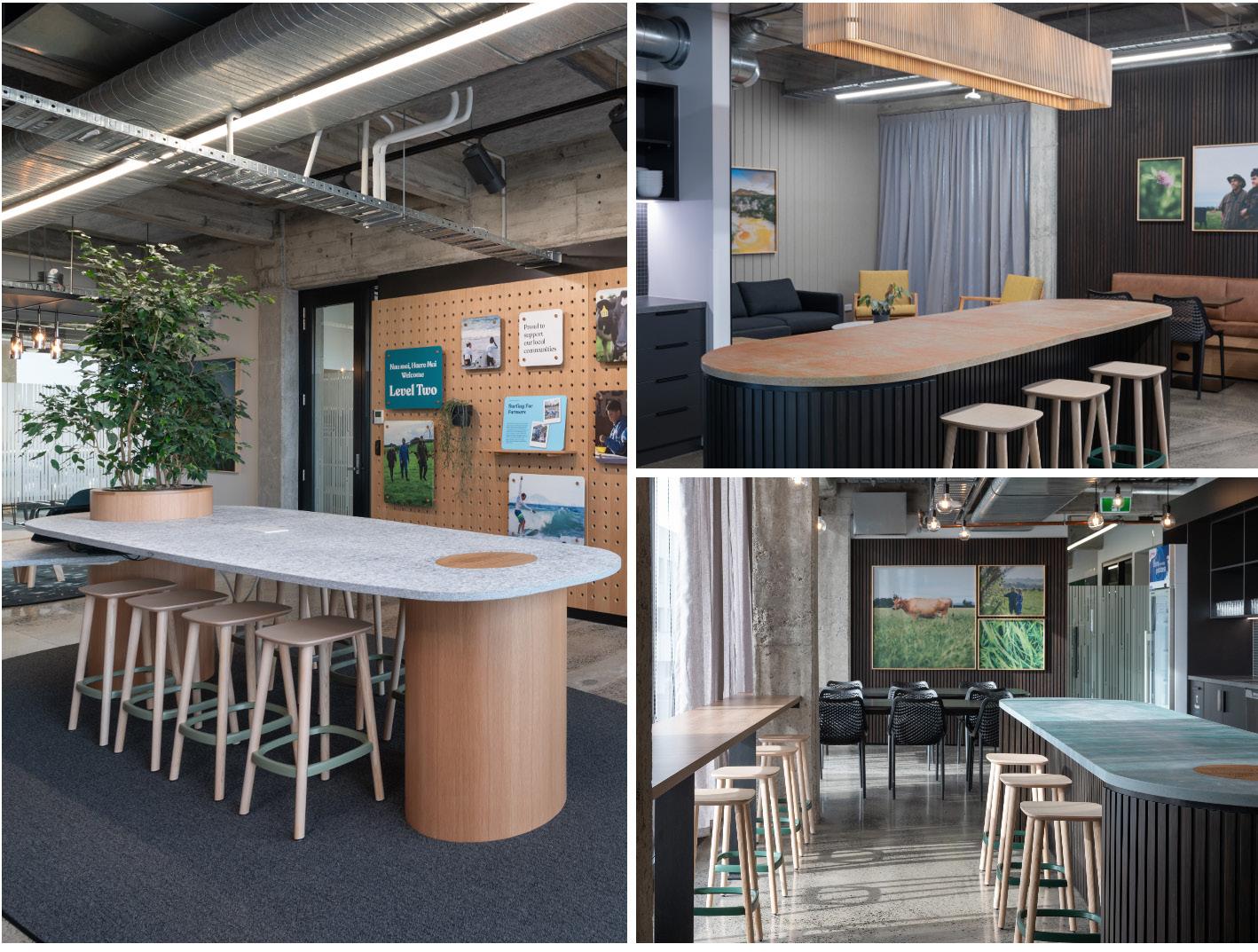
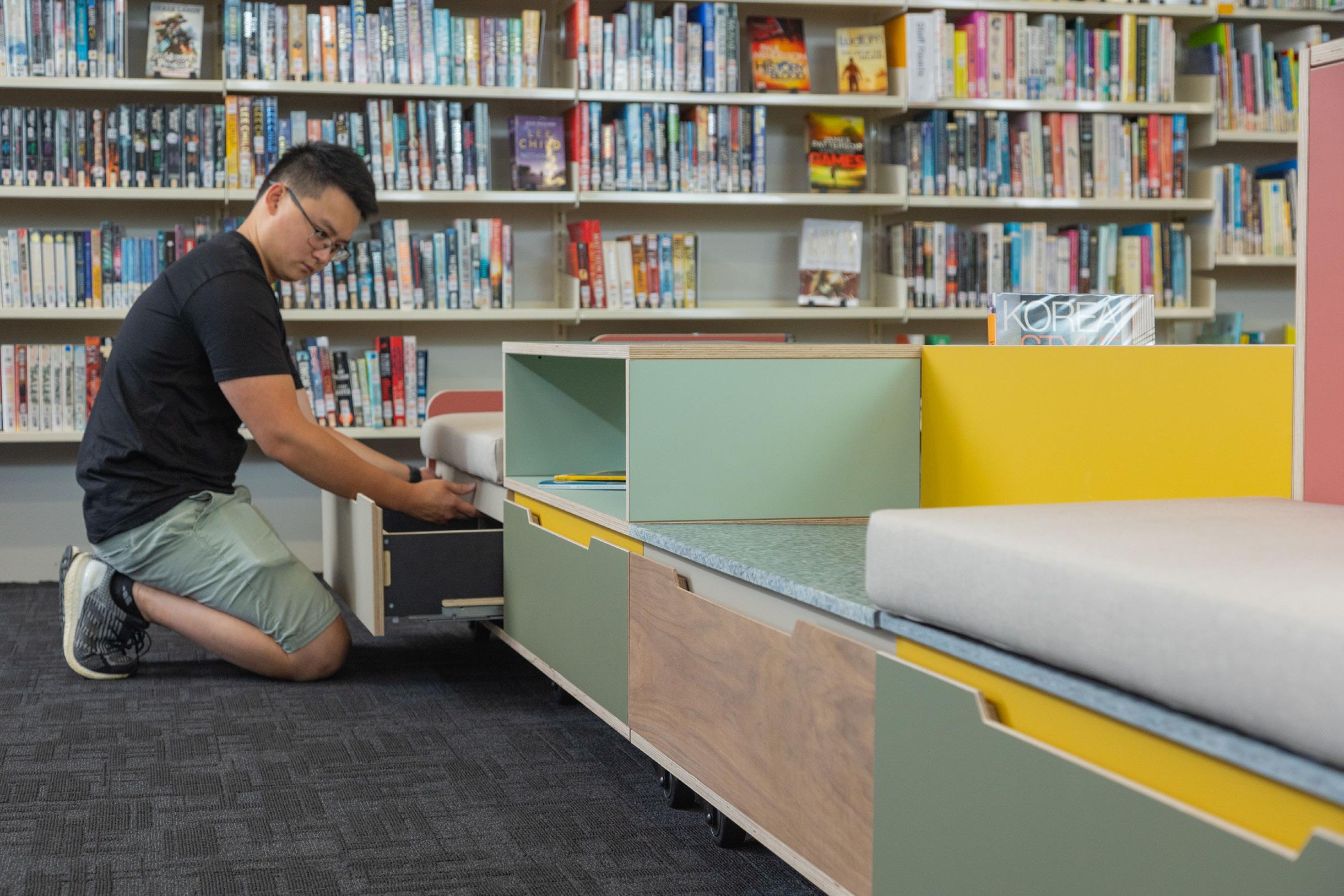
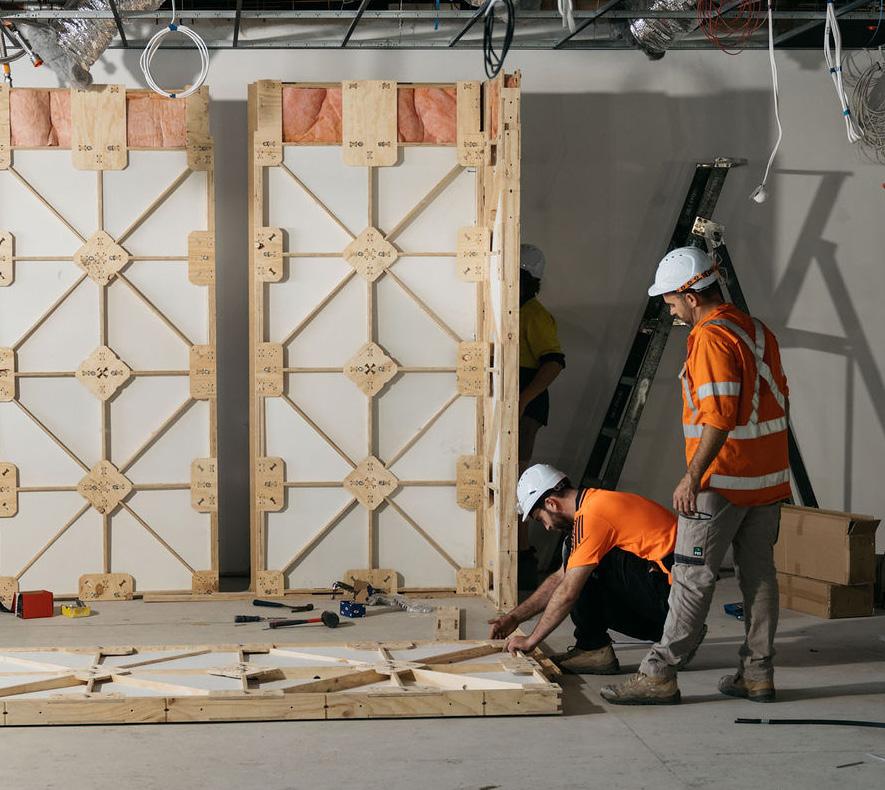
The insights in this barometer report are based on survey data collected online between March and April 2025 from organisations in the Next 95, the list of finalists in the 2024 Sustainable Business Awards. The Awards comprised two categories – Disruptive Innovation and Transformational Leadership. For the purposes of this report, the survey focused on organisations in the former category. Out of 66 organisations invited to participate, 44 completed the survey.
The survey gathered both quantitative and qualitative data on business confidence, revenue and growth trends, key challenges, support needs, and perceptions of the policy and investment environment.
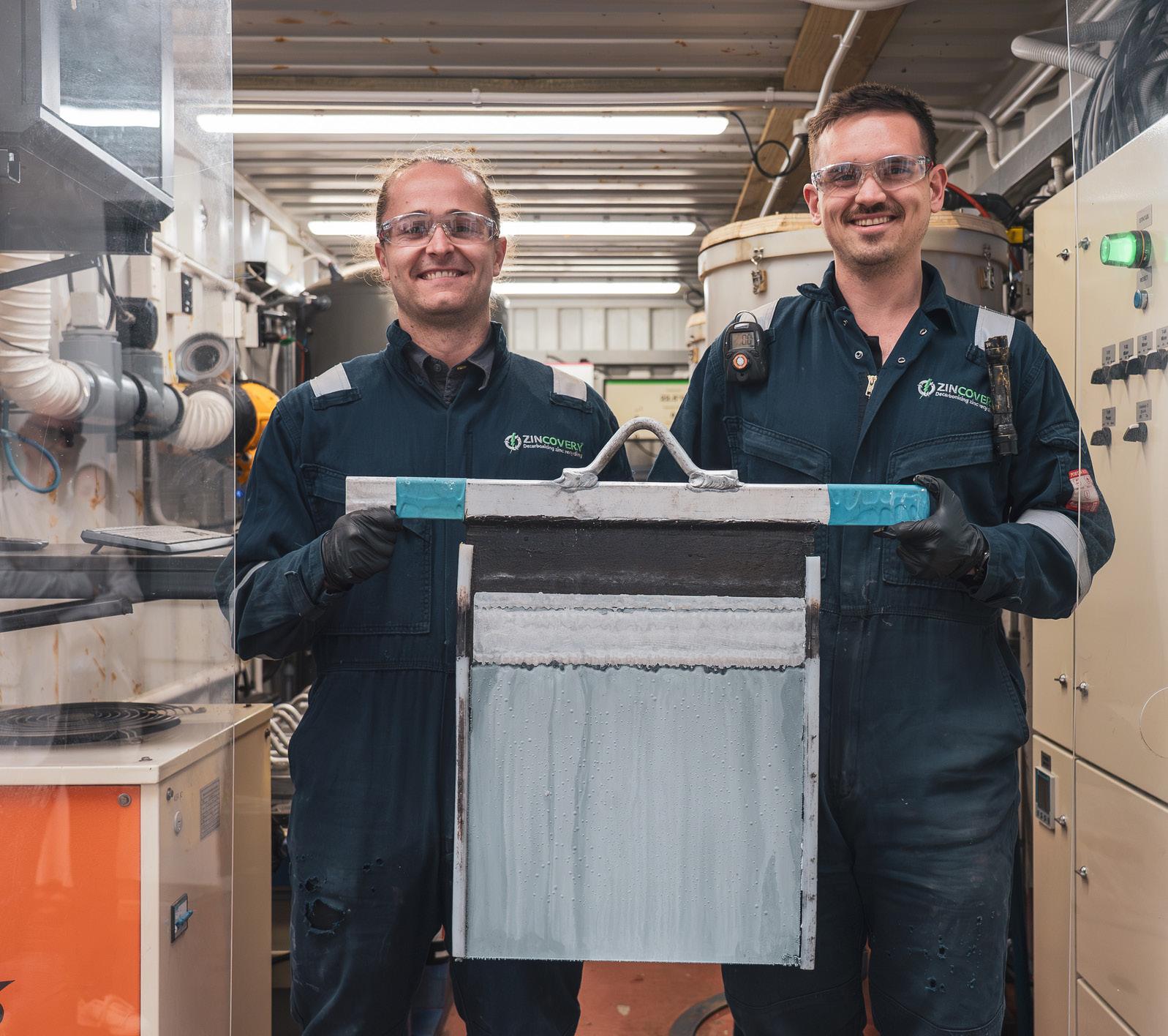
The findings suggest Aotearoa New Zealand’s sustainable business landscape is young. 76.8% of businesses in this survey were established in the past decade. Most notably, over half (51.2%) were launched between 2020 and 2024.
They are active across a broad range of industries. Manufacturing (25.6%) is the most represented, suggesting a strong focus on sustainable production and technology development. A large portion (23.3%) falls under “Other”, which may include emerging sustainability-focused services or cross-sector innovations not captured in traditional classifications. Other sectors represented include the Built Environment (9.3%), Accommodation and Food Services (7.0%), Retail, Energy and Information and Telecommunications.
6.2
The results indicate Aotearoa New Zealand’s sustainable innovation sector is currently driven by small enterprises, startups and grassroots initiatives. These organisations are often agile and innovative, yet they may face significant constraints in resources, staffing and capacity for rapid scale.
Number of employees
6.3
The figures suggest many of these businesses are still in formative stages of financial development. 18.6% are pre-revenue, reflecting a high level of emerging innovation and entrepreneurship. Nearly half (46.5%) are either pre-revenue or earning less than $500,000 annually. This underscores the exploratory nature of the sector, where businesses are actively testing new models
and technologies without yet achieving financial maturity. Notably, there is also a strong cluster in the $1-5 million range (23.3%), indicating that a proportion of these innovators are making progress toward commercial viability. However, the relatively small percentage of organisations earning above $10 million (4.7%) signals that scaling remains a challenge.
While it’s encouraging that nearly 45% of respondents report growth—particularly the 23.8% experiencing more than 20% revenue increases—there is also evidence of volatility, with nearly 12% seeing a significant decline. This duality points to the uncertain and experimental nature of sustainable business models, which may be heavily influenced by
policy shifts, investor sentiment or market adoption barriers. The fact that over 40% reported no change in revenue suggests that many businesses are in a holding pattern— possibly waiting for the right conditions (such as funding, partnerships or market readiness) to grow.
6.5
The majority of businesses expressed a positive outlook regarding their future growth prospects. Over 65% expressed either extreme or moderate confidence in their growth prospects. This is a strong signal of resilience and belief in their business models, despite the early-stage status of many and the challenges they face.
22.7% expressed a neutral stance, while a smaller group indicated concerns—4.5% are somewhat not confident, and 6.8% stated they are not confident at all in their organisation’s growth prospects.
6.6
The prioritisation of brand awareness (78.6%), market expansion (71.4%) and scaling operations (66.7%) reflects a collective ambition to grow beyond niche markets and become mainstream players. These goals suggest that many organisations are now moving from proof-of-concept towards broader commercialisation and impact.
Meanwhile, 54.8% are seeking to launch new products or services and 52.4% are focused on securing funding. This demonstrates an ongoing emphasis on innovation and investment-readiness. However, profitability (40.5%) ranks lower, implying that financial sustainability, while important, may not yet be the immediate focus for many—particularly if they are prioritising mission-driven outcomes or long-term transformation over short-term returns.
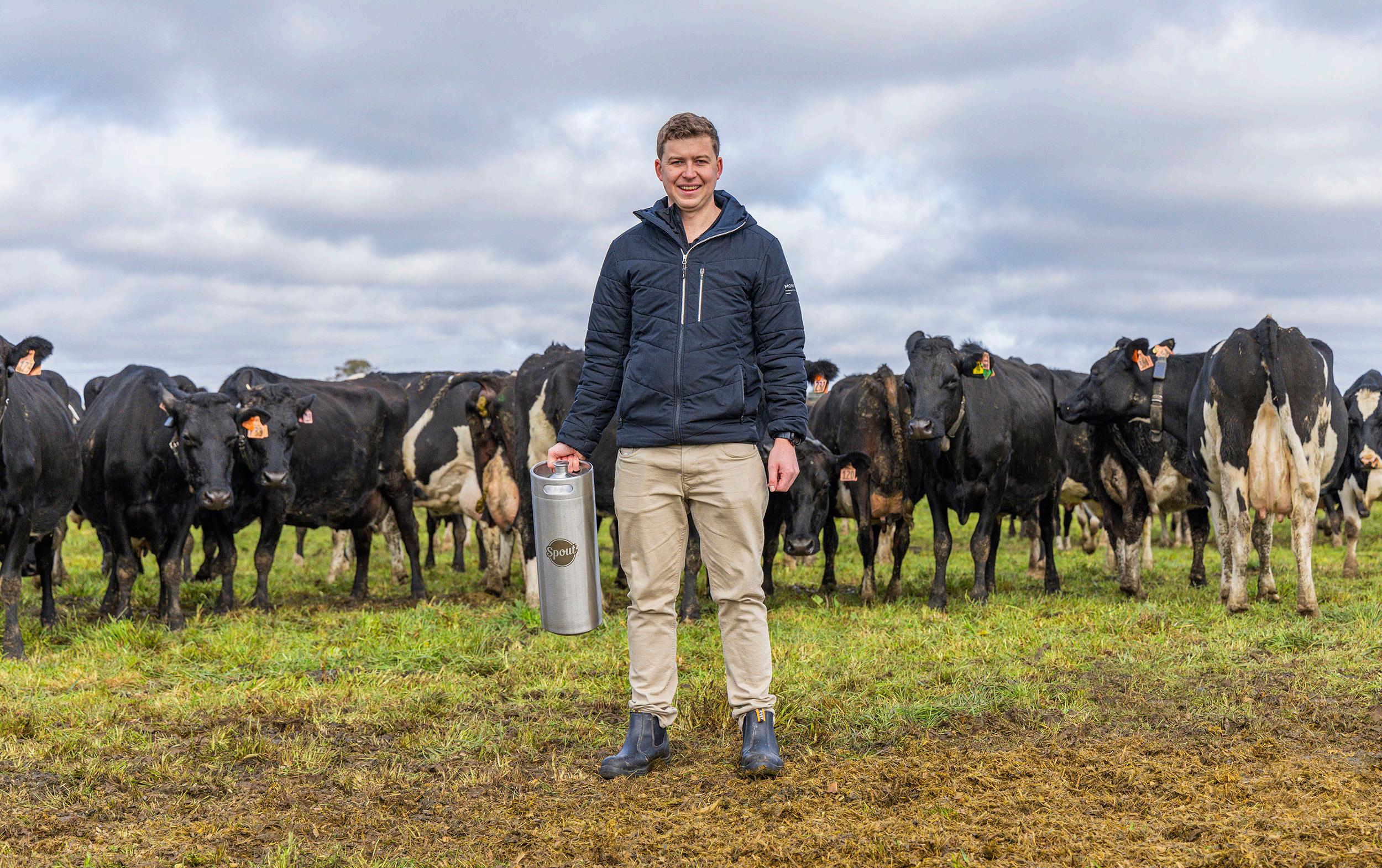

SECURING FUNDING AND INVESTMENT IS THE TOP BARRIER
The results indicate that funding is the most pressing issue for organisations in the sustainable innovation space. Over half (53.5%) of respondents indicate it is either a critical or somewhat critical challenge. The relatively small share (18.6%) who report that funding is not a challenge highlights a significant disparity in capital access across the sector. This could point to a need for more inclusive and accessible financing instruments—such as revenue-based financing, community lending models or government-backed support for earlystage ventures.
We are disadvantaged vs other countries in terms of both government support (e.g. grants) and private investment (due to tax structures that incentivise investing in property over productive assets).”
- Survey respondent
While only 21% of respondents report that finding and retaining skilled staff is a critical or somewhat critical challenge, a much larger group (32.6%) say it is somewhat of a challenge. Interestingly, nearly half (46.5%) report it is not really a challenge or not a challenge at all—suggesting a split in experiences.
This may indicate that some organisations are well-networked or based in regions with a strong talent pool, while others struggle to compete with larger employers or offer competitive packages. The data suggests a potential for sector-wide workforce development programmes or shared talent platforms to address this uneven landscape.
There
is a challenge with finding new re-manufacturing expertise as we grow and we see benefit in working to get young people into this career pipeline.”
- Survey respondent
7.3
SCALING OPERATIONS IS A BARRIER FOR MANY, BUT NOT ALL
Nearly 65% of respondents report challenges related to scaling production or operations, though only 11.6% consider it a critical barrier. This indicates that while many are working through growth-related issues, they may not be hitting full bottlenecks yet.
This could reflect a transitional phase for many of the organisations—where they are preparing to scale but haven’t fully outgrown their current operational models. It signals a clear need for capacity-building support, infrastructure investment and strategic growth guidance to help organisations move smoothly from startup to scale-up.
When asked about the biggest challenges in scaling sustainable solutions, businesses most frequently cited access to capital. Many respondents highlighted the difficulty of securing mission-aligned funding that supports growth without compromising ethical principles.
The second most commonly mentioned barrier was the need for mind shifts among consumers and stakeholders. Businesses reported ongoing challenges in educating the public about the true cost and value of sustainable products.
The biggest challenge in scaling sustainable solutions is securing the right type of funding that aligns with our commitment to environmental stewardship without compromising our control or core values.”
- Survey respondent
Other respondents echoed these points, stating that “budget constraints and people not understanding why things cost more when looking at long-term solutions,” and challenging “the long-held narrative that natural products don’t work as well as chemical ones”.
7.4
Customer uptake and awareness are major hurdles, with nearly three-quarters (73.8%) of respondents identifying this as a challenge—21.4% consider it critical and 52.4% as at least somewhat critical or somewhat challenging. Notably, no respondents said it was not a challenge at all.
This underscores a key issue in the sustainability space: even the most innovative solutions require strong narratives, visibility and market education to thrive. It points to a sector-wide opportunity for storytelling and public awareness campaigns to drive demand for sustainable alternatives.
My product is more expensive than my consumers expect, but you are paying for ethical production and sustainable materials. The biggest challenge is educating people to spend the extra money.”
- Survey respondent

SUPPLY CHAIN CONSTRAINTS AFFECT A MINORITY, BUT NOT NEGLIGIBLY
Supply chain issues are not universally felt, but still impact a significant portion of respondents: nearly 30% see them as critical or somewhat critical, while 53.7% report they are not a significant challenge. This suggests that while global supply disruptions and local logistical issues are a factor for some, many organisations may have relatively simple or localised supply chains.
Those that do experience constraints likely face issues related to sourcing sustainable materials, transportation or procurement bottlenecks. Support in diversifying supply chains, improving supplier relationships or leveraging circular supply models could mitigate these challenges.
7.6
REGULATORY BARRIERS ARE A CHALLENGE FOR A MINORITY
Regulation doesn’t appear to be a major pain point for most respondents, with over half (53.5%) stating it is not really a challenge or not a challenge at all. However, 23.3% do see it as somewhat of a challenge, and 14% view it as critical—suggesting that while the current regulatory environment is not broadly restrictive, there are instances where policy misalignment or lack of clarity hinders innovation.
This calls for more responsive and adaptive regulatory frameworks that can accommodate and accelerate sustainable innovations—particularly in fast-evolving areas like circular economy, waste recovery or carbon accounting.
Respondents were asked to identify one major challenge they face. Access to capital including funding, investment and financial support emerged as the most pressing concern across the sector.
The next most frequently mentioned challenges were government leadership and regulation, indicating concerns about lack of clear government direction, inconsistent policy environments and complex or unclear compliance requirements. One business expressed that “change will not happen without legislative support and governments
leading the change. It is too big for even massive brands to do without this, let alone little companies like us".
Staffing and capability were also prominent themes, with respondents citing difficulties including “finding expertise”, “upskilling" and "building capability and capacity”.
Other recurring themes included scaling operations (“Scaling up production to meet growing demand while maintaining product quality and sustainability standards”) and cultural and consumer attitudes.
If I could solve one major challenge today, it would be enabling businesses to secure sustainable financing without relying on borrowing or diluting ownership through shareholder sales. Access to capital is a critical barrier to growth and innovation, yet traditional funding methods often come with significant risks—debt can strain cash flow, while selling equity reduces long-term control. Developing alternative financing models, such as strategic partnerships, or reinvestment strategies, would empower businesses to scale sustainably while maintaining financial independence and long-term vision.”
- Survey respondent
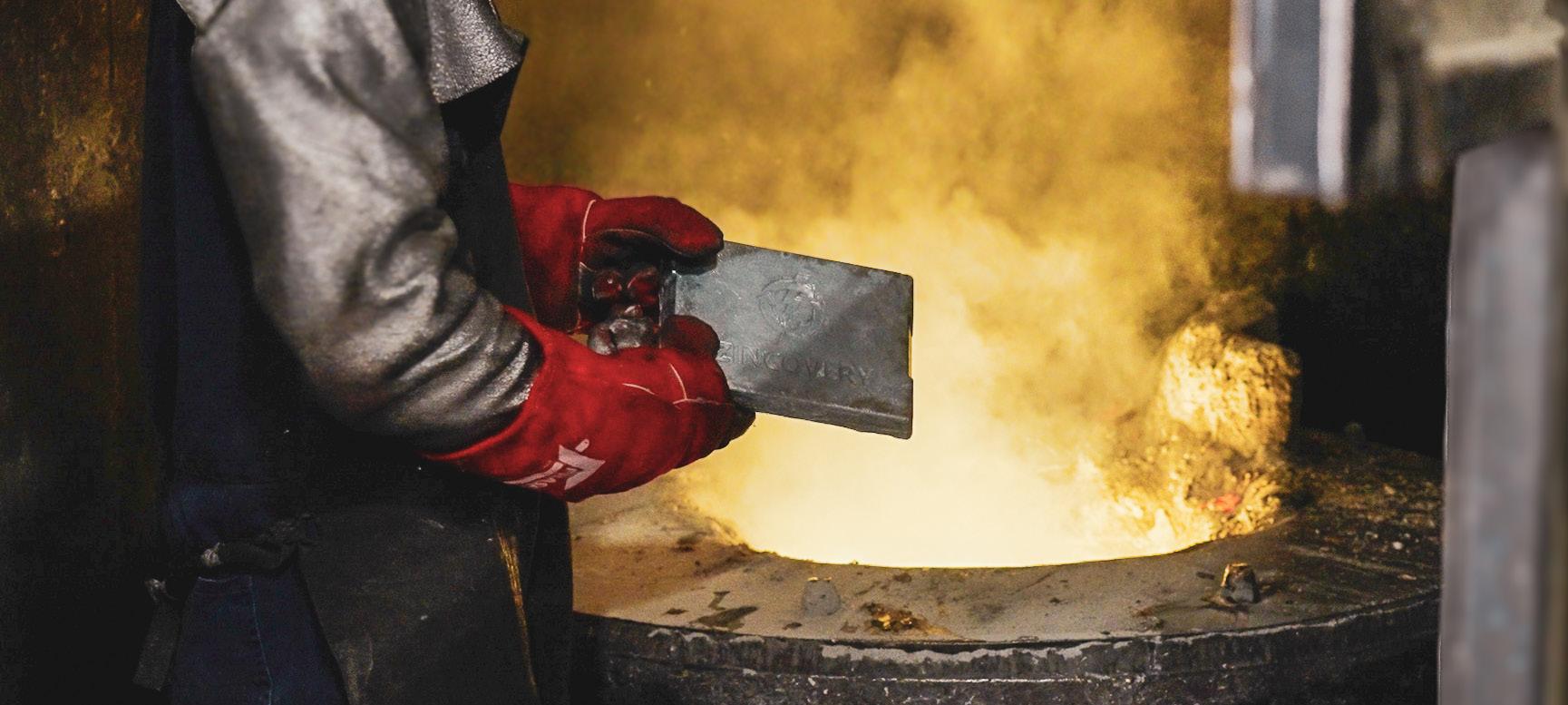
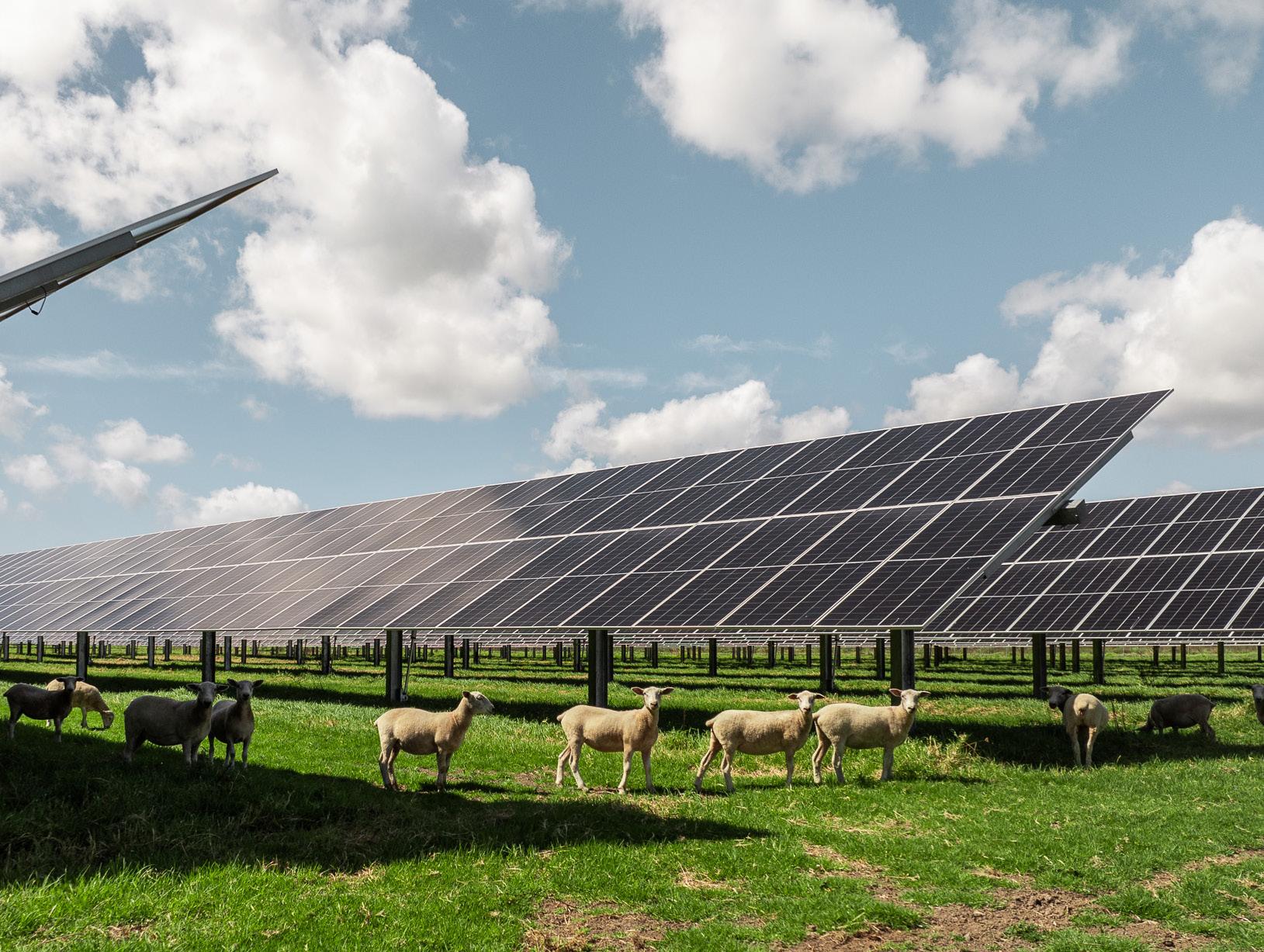
FINANCIAL SUSTAINABILITY IS A MAJOR CONCERN
A significant proportion (42.9%) of organisations are currently operating at a loss, while only 16.7% are breaking even. Although a minority of organisations are profitable—16.7% reporting profit margins above 20% and a further 23.8% achieving smaller margins (below 20%)—this paints a picture of a sector still in financial flux.
These figures indicate that many businesses are likely still in the early stages of development, where investment in R&D, production and market entry outweighs short-term returns. However, it also underscores the urgent need for support to help these organisations transition to financially viable, self-sustaining models.
When it comes to accessing funding, over half (53.5%) of organisations find it either extremely difficult (32.6%) or somewhat difficult (20.9%) to secure the capital they need. Only a small minority—18.6%—describe funding as easy or very easy to access.
This aligns closely with earlier findings that funding is a critical challenge and highlights a key bottleneck for growth and innovation. It suggests that the existing finance landscape—whether public, private or philanthropic—is not well-matched to the specific needs and risk profiles of sustainable enterprises.
8.3
In terms of the most helpful types of financial support, grants top the list, with 77.3% of respondents selecting them. This highlights strong demand for funding that doesn't require giving up part ownership or taking on significant financial risk. This reflects the fact that many of these organisations may be in early stages or operate in areas with high
social/environmental value but unclear or long-term commercial returns.
This diversity indicates that a blended finance approach—one that includes public grants, private capital, strategic partnerships and policy incentives—could be the most effective path forward.
Other commonly sought forms of

DEMAND IS GENERALLY GROWING, BUT NOT EXPLOSIVELY 9.1
On the demand side, respondents report at least some growth in customer interest or uptake over the past year:
• 25% report significant growth
• 27.3% report growth
• 38.6% report some or little growth
However, only a quarter are experiencing strong, accelerated market traction, while the majority are growing at modest or moderate rates. This suggests that many sustainable innovations are still gaining a foothold and have not yet crossed into the mainstream.
Declines in demand were reported by 9.1% (6.8% decline and 2.3% significant decline), suggesting limited but not negligible market challenges for a small subset.
9.2
CUSTOMER AWARENESS REMAINS MODEST FOR MOST
When asked about customer awareness,only 7.1% say it is very high, while 23.8% report high and the majority (38.1%) are neutral.
30.9% report low or very low awareness. This suggests that while brand visibility and product awareness are improving, most organisations still face substantial hurdles in reaching their target audiences. These findings highlight the need for marketing support, storytelling and consumer education as key enablers of growth.
Clients lack knowledge of available solutions because their minds are restricted only by what they know or have seen.”
- Survey respondent

9.3
When asked about the biggest barriers to broader customer adoption of sustainable products and services, businesses most frequently identified consumer awareness and education. Many respondents emphasised that a lack of understanding about sustainability and its benefits limits customer engagement.
As one put it, “People are not looking for what they don’t know,” while another noted, “The biggest barrier to wider customer adoption for [our business] is consumer awareness and education”.
This highlights the need for greater investment in public education and marketing to build familiarity with sustainable options.
In addition to awareness, cost-related challenges were commonly cited. Businesses reported that sustainable products often face higher upfront costs, making them less accessible to budget-conscious consumers, even when they offer long-term value.
Other notable barriers included access to capital, which can limit the ability of sustainable businesses to scale and reduce costs, as well as market competition from cheaper, less sustainable alternatives.
Together, these insights suggest that wider adoption of sustainable solutions will require a combination of consumer education and marketing support, financial innovation, and supportive policy to accelerate wider customer adoption and sustainable business growth.
Short-term affordability is still top of mind for customers vs longer-term cost savings.”
- Survey respondent
A lot of companies we work with ultimately still make decisions on the cheapest price upfront, even though that costs a lot more in the medium to longer term. Decisions are ultimately made by accountants and sustainability can sometimes feel tokenistic when the rubber meets the road.”
- Survey respondent
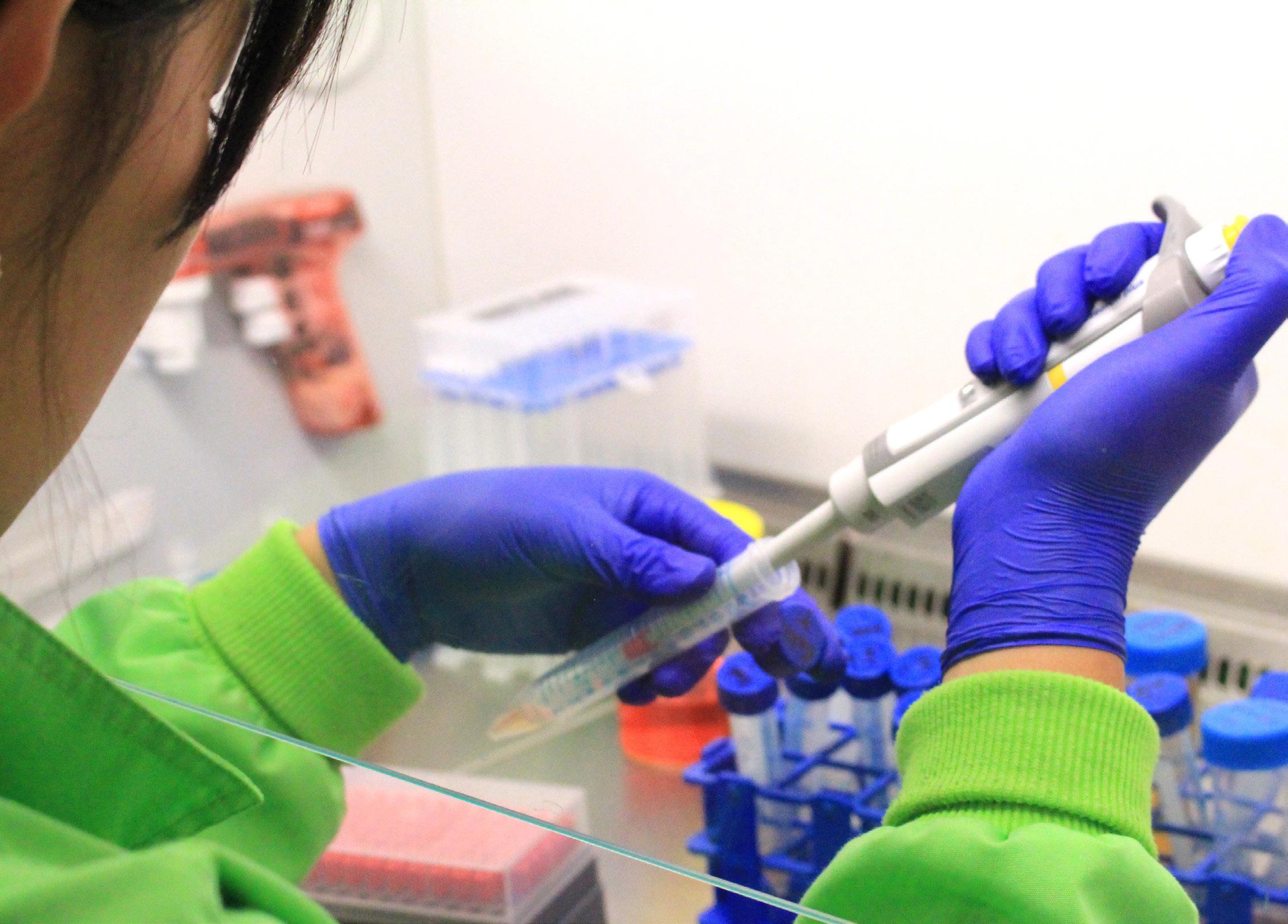
THE POLICY ENVIRONMENT IS PERCEIVED AS LARGELY UNSUPPORTIVE
Only a small minority of respondents—4.5%— describe Aotearoa New Zealand’s policy and regulatory environment as very supportive, and just 6.8% say it is supportive. In contrast, a significant 47.7% of respondents believe the environment is either not supportive (25%) or not at all supportive (22.7%).
The largest single group—40.9%—are neutral, indicating that while they do not experience active barriers, they also don’t see policies actively enabling their business models. Overall, this suggests a perceived gap between policy intent and practical support, particularly for sustainable or innovative business models that don’t fit traditional frameworks.
This finding reinforces the need for policy reform that better aligns with the unique needs of purpose-driven ventures and emerging sectors such as the circular economy, clean tech and social enterprise.
A need for a level of consistency regarding policy was also cited as being beneficial.
Policy consistency. The large swings in political and funding priorities are a constant challenge and an unproductive draw on resources.”
- Survey respondent
When asked about the most critical regulatory or policy changes that could benefit the sector, respondents overwhelmingly pointed to the need for stronger environmental and sustainability policy and regulation. Common recommendations included “mandating emissions reporting”, “strengthening emissions pricing” and introducing “policy change around reuse and refill”. These suggestions reflect a desire for clearer and more ambitious environmental standards that level the playing field and drive systemic change.
The second most frequently cited area for improvement was government financial support, particularly in the form of pre-seed funding, grants and innovation incentives. Several respondents noted that existing funding mechanisms often favour largescale businesses, leaving smaller or emerging
sustainability-focused businesses at a disadvantage.
In addition, tax policy reform was recommended to better support impactfocused investment. For example, one respondent called for “changes to tax policy which incentivise impact investment”, highlighting the need for a fiscal environment that supports long-term sustainable innovation.
Expanding targeted grants, subsidies or low-interest funding for sustainable farming initiatives would help businesses like ours scale without relying on debt or external investors.”
- Survey respondent

When asked what forms of support would most help their organisation or innovation succeed, respondents prioritised financial capital and policy reform:
Top priorities:
• Access to investment/funding is seen as essential by 50% and somewhat essential by 27.3%, making it the most universally desired form of support.
• Government policy and regulatory support was marked as essential by 44.2%, with another 41.9% describing it as somewhat or a little essential.
These results clearly show that many organisations feel structurally constrained by current systems and are seeking both the means (capital) and the enabling environment (policy) to grow and scale their impact.
Other critical areas of support:
• Marketing and customer awareness is a close third, with 38.1% saying it's essential and another 52.4% considering it at least somewhat or a little essential This reflects earlier findings around limited customer awareness and modest market traction.
• Talent and workforce development and technology or infrastructure access received more mixed responses. While 19% and 17.5%, respectively, see them as essential, a significant proportion (28.6% and 27.5%) consider them not quite needed—indicating these needs may vary more widely by stage of business or industry.
• Supply chain/logistics support is seen as essential by only 9.8%, but moderately relevant to another 41.5%. This suggests that while supply chain issues exist, they are not universally felt—or are perhaps viewed as more manageable compared to financial or policy barriers.
Lower priorities (but still notable):
• Mentoring is considered essential by only 2.5%, with 52.5% saying it is either not quite needed or not needed. This could reflect a relatively experienced group of respondents or a lack of clarity around what high-quality mentorship would involve.
• ESG/Sustainability support is also lower in priority for many, with only 12.5% considering it essential. However, 30% say it is somewhat essential, showing that ESG support is still relevant but perhaps secondary to more pressing structural challenges like funding and policy alignment.

When asked what would most significantly accelerate impact, respondents identified three key areas for action: improved access to capital, stronger environmental policy and greater brand awareness.
Access to capital was the most frequently mentioned factor. Many businesses reported that a lack of early-stage funding and flexible financial support limited their ability to scale and deepen their impact. As one respondent noted, “It’s not just about reach – it’s about depth. Funding would help us make the platform more powerful, more accessible and more impactful for everyone involved”.
The second most cited factor was the need to strengthen environmental and sustainability policy and regulation. Businesses expressed a desire for more decisive government leadership to set direction and create enabling conditions for systemic change. Specific suggestions included mandating emissions reporting, strengthening emissions pricing, and introducing clear regulations for sustainable construction and circular procurement.
One business noted, “The government announcing more large infrastructure projects and establishing more regulations around sustainability in construction”, while another highlighted the importance of “Govt.-driven mandates for circular procurement”. These actions would provide the policy certainty needed for innovation and to encourage wider adoption of sustainable practices.
Strengthening brand awareness and consumer education were also identified as key actions for accelerating sustainability impact.
production process could improve efficiency, reduce waste, and optimise material usage, lowering costs and increasing output capacity”. These innovations can be seen as critical tools for driving operational efficiency, traceability and scalability.
In parallel, there is growing momentum around environmental and sustainability awareness. Respondents expect increased public concern for sustainability issues to shape consumer behaviour, regulation and industry standards.
Looking ahead, respondents identified several key trends and innovations they believe will shape their organisations and the wider sector over the next five years. The most frequently mentioned development was the rapid advancement of artificial intelligence and digital technologies.
Respondents noted that AI, automation and access to data are transforming operations— from streamlining compliance processes to optimising production systems.
One business highlighted that, “Digital technologies and AI are rapidly changing the compliance landscape and making it much easier to remotely audit and provide evidence of H&S systems". Another stated, “Implementing AI and machine learning in the
One participant noted, “Consumers' increasing awareness that our linear, extractionbased food system is broken… for them and for our planet”. Another commented, “Standardisation will continue to enhance performance and unlock value in our sector”. Others spoke to shifting preferences for local and low-impact products, predicting that “being fully made in New Zealand comes as a great advantage, provided that we are able to scale operations here accordingly”.
Businesses indicated that aligning early with these evolving expectations may offer a competitive edge as sustainability awareness grows.
Additionally, organisations pointed to changing market conditions, including the rising cost of energy and water, and volatility in supply chains and resource inputs.
Overall, businesses anticipate a convergence of technology, environmental awareness and economic pressures will redefine the sustainable business landscape in the coming years.
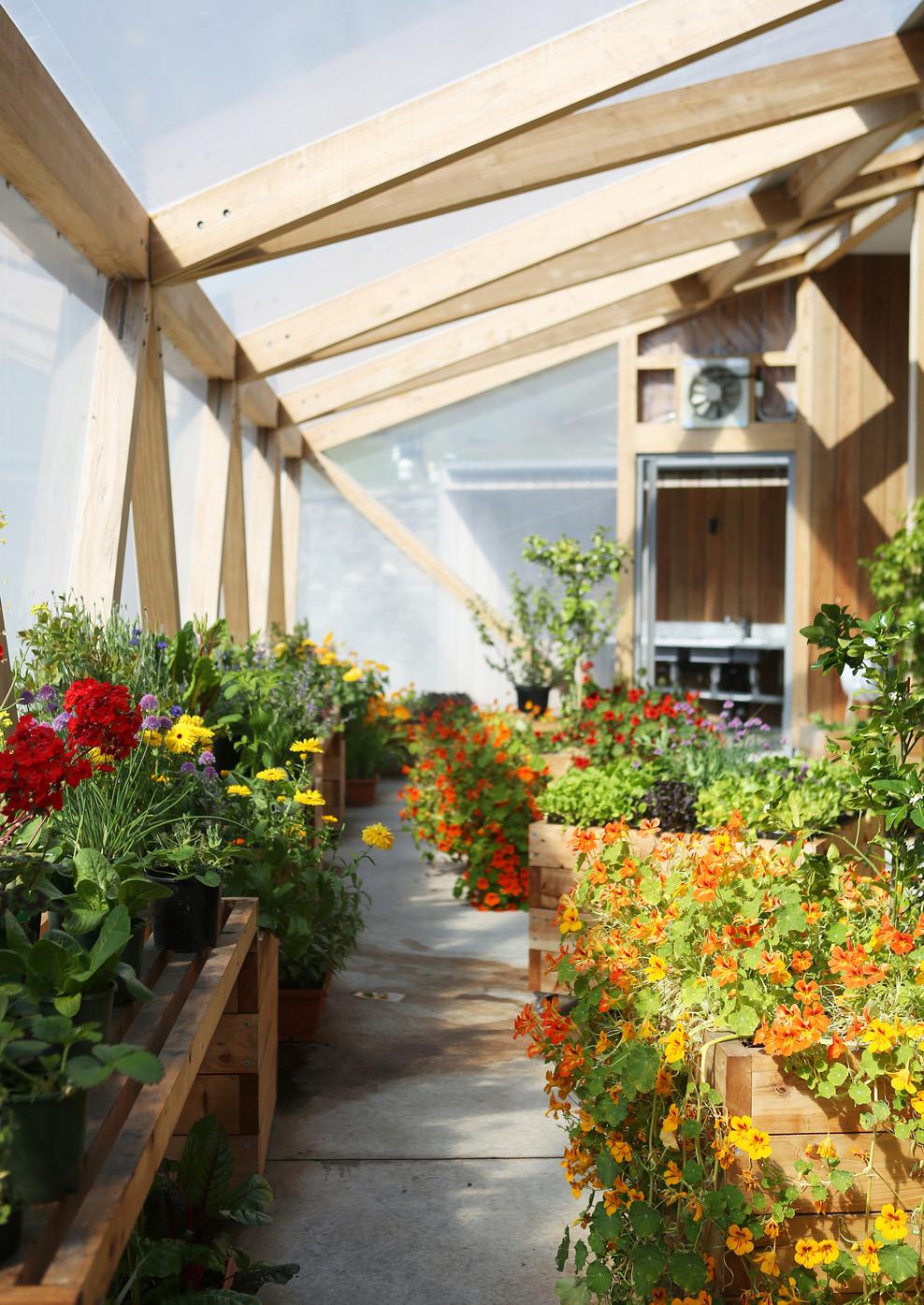
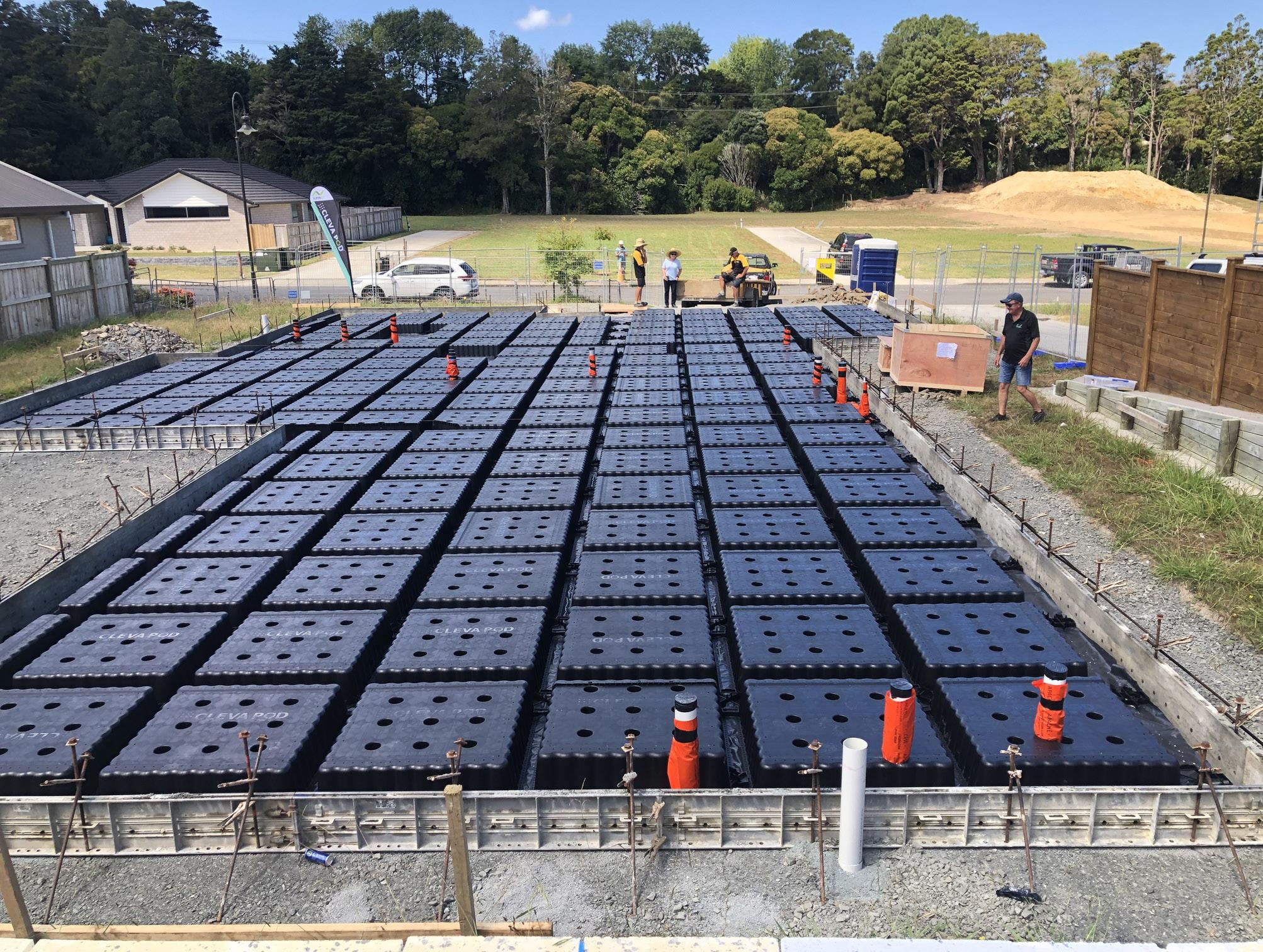
13.1
SUMMARY OF FINDINGS
The Next Wave report shows that Aotearoa New Zealand has sustainable innovators with the ideas, talent and determination to succeed. But they need systems, investment and coordination to turn promise into performance.
The momentum is real—but so are the barriers. From funding gaps to fragmented policy signals and slow market uptake, the challenges are shared and structural. Overcoming them requires a collective shift towards values-aligned capital, smarter procurement, bold storytelling and shared leadership across sectors.
Supporting this wave of innovation isn’t just about achieving low-emissions, circular and regenerative outcomes—though those are critical. It’s also about growing futurefit businesses, creating high-value jobs, building economic resilience and positioning Aotearoa New Zealand as a serious player in the global transition already underway. The organisations contributing to this report are competitive, export-ready ventures solving real-world problems. Backing them now is not a cost—it’s a strategic investment in Aotearoa New Zealand’s long-term prosperity.
The innovators are ready. Who will stand with them?
13.2
Deploy values-aligned capital at scale
Develop targeted public and private investment vehicles that support earlystage ventures without requiring mission compromise. Blended finance models and impact-first capital are critical to enable these businesses to grow.
Make public procurement a catalyst for sustainable market growth
Procurement—both public and private—has the power to drive systemic change. Large purchasers, from government agencies to corporates, councils and institutions, must actively support the uptake of circular and low-emissions solutions. Clear, consistent criteria and long-term commitments can help create stable demand and viable markets for sustainable innovation. Reforming procurement practices across sectors is essential to send a unified market signal that sustainability is not a ‘nice to have’—it’s a baseline expectation.
Signal ambition through collective policy leadership
As national policy settings become less consistent, there’s a growing need for industry, local government, iwi and missiondriven investors to step up. Together, these actors can build coalitions that set clear expectations and voluntary standards, reducing uncertainty and enabling innovation. Collective leadership can help shape the conditions for long-term systemic change— even in the absence of strong central direction.
Build consumer awareness through collaborative storytelling
Wider uptake of sustainable solutions won’t happen without shifting consumer mindsets—but this doesn’t need to rely on government funding. Businesses, media partners, industry networks and investors can co-create campaigns and share narratives that educate, inspire and normalise sustainable choices. Strategic collaboration across sectors can amplify reach and make sustainable alternatives more visible and compelling.
Invest in the conditions for scale
Expand access to infrastructure, manufacturing capability and technical support to help early-stage businesses grow while maintaining sustainability standards.
Elevate the strategic role of sustainable business innovation through cross-sector coalition leadership
In the absence of strong central coordination, leadership must come from those driving change on the ground. A cross-sector coalition—led by progressive businesses, investors, research institutions and trusted industry networks—can set a shared agenda for sustainable enterprise. By coordinating priorities, aligning messaging and engaging with policymakers, this coalition can raise the strategic profile of sustainable business and help shape the next phase of economic development in Aotearoa New Zealand.

Celebrating groundbreaking products, services, technologies and business models designed with sustainability and circular economy principles at their core.
The following organisations were selected from the Next 95, a list of finalists in the 2024 Sustainable Business Awards, focused on disruptive innovation.
This list celebrates homegrown creativity, technology and innovation that disrupts existing systems and drives significant positive environmental and social impact. It recognises organisations that pioneer new business models or use indigenous frameworks to challenge linear systems and promote a future where nature and people thrive.
Adaptable Structures’ modular system reduces waste during the initial construction phase.
Again Again has diverted nearly 40,000 single-use containers from landfills through its reusable packaging platform.
AgriSea aims to build Aotearoa New Zealand’s first biorefinery to produce sustainable nanocellulose from seaweed by 2025.
Aro Ha Wellness Retreat generated and used 100% renewable energy in 2023, offsetting more than 69 tonnes of emissions.
By empowering people to take control of their electricity consumption, Basis smart panels can reduce power bills by up to 20% and lower the risk of electrical fires by 90%.
Captivate Technology is commercialising a sponge-like adsorbent material that captures carbon dioxide.
CarbonCrop aims to remove greenhouse gas emissions from the atmosphere through nature-based solutions.
CarbonScape is challenging the graphite industry with its biographite technology.
In partnership with CarbonTrail, BNZ provides 1,000 small businesses and enterprises with tools to measure and manage their emissions, aligning with the country's climate disclosure requirements.
Cetogenix’s Ceto-Boost platform aims to revolutionise waste management by transforming organic waste into renewable carbon, nutrients and biomethane using hydrothermal oxidation.
Citizen and NZ Cherry Corp have pioneered two circular food upcycle initiatives to save millions of cherries and thousands of loaves of bread going to waste.
Cleanery provides high performing, vegan, cruelty free, refillable cleaning products without the water content, reducing transportation emissions.
Clevaco’s Cleva Pod addresses the environmental issues caused by traditional polystyrene pods, commonly used in concrete foundations since the 1980s.
Climate Venture Capital Fund is on track to avoid one million tonnes of emissions per $50 million invested. It has a target to avoid 50 million tonnes by 2035.
ClimateTracker is the world’s first fully digital, machine-readable software for climate-related financial disclosures.
Cleanstone panels are made from 100% recycled plastics. The production of each panel diverts more than 75 kilograms of plastics from waste and has a near-zero carbon footprint.
Daisy Lab aims to innovate in the food sector, with a particular challenge to the dairy industry.
Ecogas converts organic waste to produce enough electricity every year to power the equivalent of 2,500 homes.
Since 2017, Eden Orchards has rescued more than 2.4 million kilograms of imperfect fruit, transforming it into pure juice.
Envirocon diverts 30,000 tonnes of concrete waste every year, reducing annual emissions by 2.8 million tonnes.
EnviroStrat’s regenerative ocean farming model restores ecosystems and creates a sustainable supply chain for native seaweed and scallops.
EV Maritime aims to reduce emissions with its electric ferries by 500,000 tonnes per year by 2040. It plans to launch two vessels in Auckland in 2025.
A $78 million partnership deal will help fund solar projects that will generate enough power for 178,000 homes.

Fletcher Living’s LowCO initiative, in partnership with Watercare, focuses on the development of low-emission, climateresilient homes.
Good Grub takes food waste and uses the Black Soldier Fly to convert this into protein and fertiliser.
Gratpak is the first local manufacturer to make 100% recycled paper bags from cartons and building industry waste.
45% of the cyclone-affected homes assessed by Henderson Demolition have been successfully relocated, reducing waste and landfill impacts.
JT Group has developed innovative technology an electric water blaster and robotic wash machine.
The Kāinga Ora solar initiative has reduced annual power bills by up to $1,000 for more than 630 households.
Kaynemaile’s patented architectural mesh is made up of polycarbonate, 88% of which is made from reprocessed wood pulp or similar bio-based materials.
La Marzocco is shifting a growing portion of its business to refurbishing Espresso machines.
Aro Ha Wellness Retreat generated and used 100% renewable energy in 2023, offsetting more than 69 tonnes of emissions.
LINQ’s Carbon Insight Tool enables quick, accessible emissions predictions, integrating carbon data into business decision making.
LMA Timber has sequestered 2,160 tonnes of carbon by repurposing reclaimed timber.
Lodestone Energy leads Aotearoa New Zealand’s grid-scale solar market, disrupting the traditional energy landscape with its solar farms that provide 100% renewable electricity.
Mushroom House strives to unlock the potential of the humble mushroom through tasty mushroom innovations.
Mutu has repurposed more than 300 tonnes of resources, preventing waste from reaching landfills.
NILO’s plastic-to-adhesive technology aims to divert plastic waste into useful products.
Marine whey from Nutrition from Water offers an alternative to traditional dairy whey made from marine microalgae, with less water use in the production process.
ŌKU New Zealand is a B Corp-certified, Māori-owned business that produces a range of wellness products from the ngahere (native forests) of Aotearoa New Zealand.
Opo Bio works in cellular agriculture, enabling production of food products similar to meats.
Overland Group’s Renew footwear, made from recycled polyester yarn, sold out three times within the first six months due to high demand.
Savey Meal-bot, an AI-powered tool, empowers Kiwis to reduce food waste by creating recipes from leftovers and pantry staples.
RETEX by Easy Access is a recycled textile mat made from recycled uniforms and safety gear, designed for multiple applications in construction and surface protection.
saveBOARD’s two factories have the capacity to recycle 8,000 tonnes of packaging waste into building materials every year.
Shower Canary is an innovation designed to tackle water and energy waste by reducing shower time.
Solid has saved more than 150,000 toothpaste tubes from landfill with its plastic-free oral care range.
SpaceBar Design has diverted more than 33,000 kilograms of short-lifespan materials from waste by using sustainable, repurposable materials in more than 50 projects.
Spherelose produces biodegradable compounds from plant oils and cellulose sourced from wood pulp, instead of fossil fuels or palm oil.
Spout Milk’s reusable milk kegs have eliminated more than 100,000 plastic milk bottles from Aotearoa New Zealand’s waste stream.
Since 2020, Standard Issue’s 'Care for Life' initiative has repaired more than 400 garments and kept them out of landfill.
The Woo-Lace by Steaddi is a biodegradable wool shoelace that decomposes within three to four months, reducing landfill waste.
Since 2020, the New Zealand Food Network has distributed more than 30 million kilograms of food to communities facing food insecurity.
The Planetary Accounting Network’s Planetary Facts is an environmental labelling system that emulates Nutrition Facts by offering clear environmental data.
Toast Electric’s not-for-profit model channels 100% of profits towards alleviating energy hardship.
TROW Group deconstructs houses, salvaging around 80% of resources for reuse. So far, this has led to the repurposing of more than 500 tonnes of materials.
Wishbone Design Studio has sold more than 200,000 fully-repairable ride-on toys. The business uses circular economy principles to create durable, repairable and multi-functional ride-on toys.
Workride is designed to help businesses get more employees riding to work and living healthier lives.
Workwear Recycled and Textile Products have diverted 12,000 kilograms of textiles and PPE from landfills by recycling them into alternative products.
XFrame has deployed more than 50,000 circular building components, promoting zero-waste construction.
Yum Jar NZ has diverted more than 120 tonnes of glass from Wellington’s waste streams in just four years.
Zincovery’s patented recycling process for zinc has an ambition to avoid more than 3 million tonnes of carbon emissions per year within a decade.
The Sustainable Business Network (SBN) is Aotearoa New Zealand’s largest sustainable business organisation, representing a diverse cross-section of the business and sustainability communities. We’re at the forefront of change, driven by a vision of a world where people and nature prosper. We provide the tools, knowledge and connections needed to accelerate the shift to a sustainable future.
Te Whare Wānanga o Waitaha | University of Canterbury (UC) has been advancing the pursuit of knowledge and offering accessible, research-led learning for over 150 years, with a strong focus on addressing local and global challenges.
Recognised in the top 100 universities worldwide for global impact and ranked in the top 20 for Sustainable Development Goal 11 – Sustainable Cities and Communities, UC empowers students to drive sustainable change through innovation, community engagement, and inclusive learning.

This report was produced by the Sustainable Business Network (SBN) in partnership with the University of Canterbury. Special thanks to Dr Kate Prendergast and Dr Joya Kemper from the University of Canterbury, who co-authored this report.
We would also like to thank all of the organisations that took the time to share their insights and experiences through the survey forming the foundation of the report.
SUSTAINABLE BUSINESS NETWORK
Address Level 5 48 Emily Place
Auckland CBD Auckland 1010
Contacts
P 09 826 0394
E office@sustainable.org.nz W sustainable.org.nz